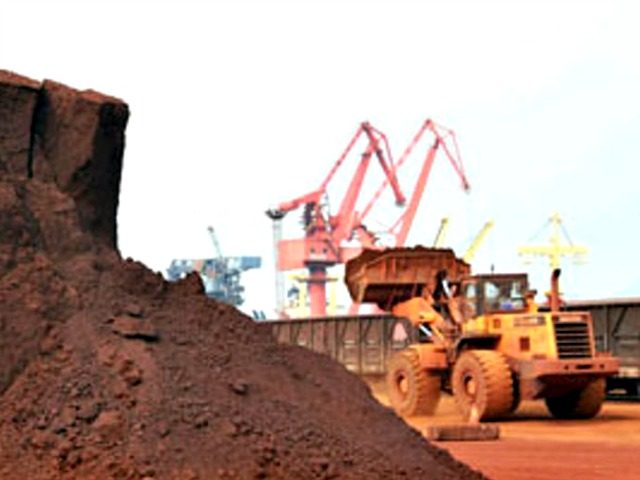Department of Interior Secretary Ryan Zinke on Thursday set in motion President Donald Trump’s executive order to undertake the first nationwide geological and topographical survey of the United States in modern history to seek critical minerals that are now mostly imported from abroad, primarily from China.
The order also directs Interior bureaus to begin work on identifying immediate domestic sources for critical minerals.
“Right now the United States is almost completely reliant on foreign adversaries and competitors for many of the minerals that are deemed critical for our national and economic security,” Zinke said at a signing ceremony at Interior. “As both a former military commander and geologist, I know the risk this presents to our nation.”
“The problem is we can’t fix the problem if we don’t know where the minerals are within our own boarders,” Zinke said. “Other nations are far ahead of us with mapping of their mineral resources, leading to private sector investment overseas rather than right here at home.”
“Drafting a complete topographical and geographic survey of the United States is exactly the kind of task the [United States Geological Survey] was created to do,” Zinke said.
The executive order that Trump signed on Wednesday explained the importance of this new strategy. The order states:
Despite the presence of significant deposits of some of these minerals across the United States, our miners and producers are currently limited by a lack of comprehensive, machine-readable data concerning topographical, geological, and geophysical surveys; permitting delays; and the potential for protracted litigation regarding permits that are issued.
An increase in private‑sector domestic exploration, production, recycling, and reprocessing of critical minerals, and support for efforts to identify more commonly available technological alternatives to these minerals, will reduce our dependence on imports, preserve our leadership in technological innovation, support job creation, improve our national security and balance of trade, and enhance the technological superiority and readiness of our Armed Forces, which are among the Nation’s most significant consumers of critical minerals.
Others on hand for the signing ceremony expressed support for this groundbreaking survey. Sen. Lisa Murkowski (R-AK), chairman of the Senate Energy and Natural Resources Committee chairman, said:
Our nation’s growing dependence on foreign minerals is a distinct threat to our economy, our national defense, and our international competitiveness. We need to improve all aspects of the supply chain – from geologic surveying to permitting reform – so that our nation produces more of the minerals that are fundamental to energy, health care, manufacturing, and other technologies.
“At a recent hearing of the Energy and Mineral Resources Subcommittee, which I chair, I emphasized the extent to which arbitrary mineral withdrawals and a federal bureaucracy loathe to authorize mineral projects have brought us to this precarious juncture,” Rep. Paul Gosar (R-AZ), said. “But there is a way forward.”
“I applaud President Trump and Secretary Zinke for taking action to advance American energy dominance and strengthen our national security,” Gosar said.
The week started with the USGS releasing a report on Tuesday that “detailed the extent to which the United States is fully, majorly, or partially dependent upon foreign competitors and even adversaries for our supply of ‘critical minerals.’”
“The report identified 23 of the minerals that are most-needed to sustain our national defense and economy and are used in manufacturing everything from batteries and computer chips to equipment used by our military,” the DOI press release stated. “The report shows a troubling trend of foreign dependency.”
“The report found the United States is most reliant on China for critical minerals, with at least 20 critical minerals being sourced exclusively in China,” the press release stated. “Russia, South Africa, Brazil and Canada also supply many of our minerals.”
“The best part of this report is that we can provide complete minerals information for the Nation for the first time in generations,” Klaus Schulz, an editor and author of the report, said.“

COMMENTS
Please let us know if you're having issues with commenting.